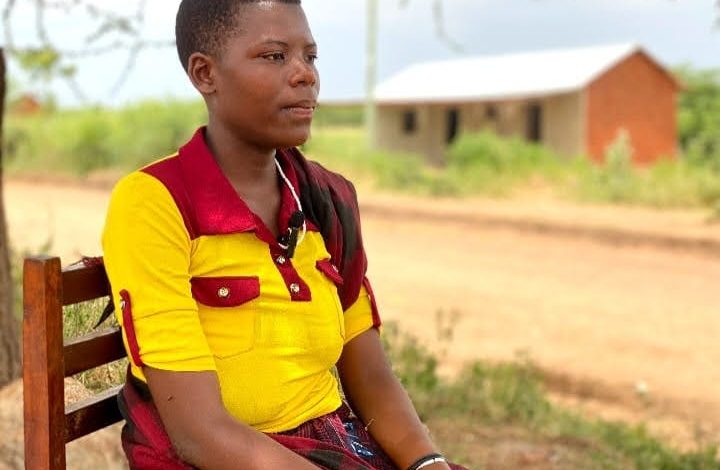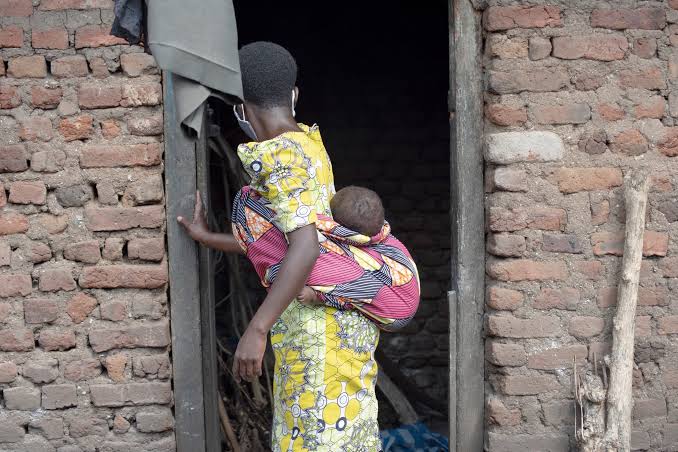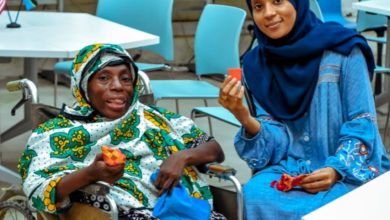Teen, forced marriages open the Pandora Box to Tanzanian girls

SHINYANGA: THE statistics released by Tanzania Media Women Association (TAMWA) revealed an alarming increase of teen marriage from 67 percent in 2010 from just 10 percent in 2004.
As well, TAMWA reported that Shinyanga leads by having 59 per cent of teen marriages followed by
Tabora with 58 percent, Mara with 55 percent, Dodoma with 51 percent, Lindi with 48 percent.
According to TAMWA findings, the situation in Pemba is more alarming as 5 out of 10 young girls drop school before reaching Standard 7.
Both forced marriages or teen marriages have been big obstacles to the young girls’ development as they bar them from reaching their desired education goal.
The dreams of many young Tanzania girls are stuck, as most of them through forced marriages or teen marriages they endure violence, rape and forced marriage.
For girls who are forced to marry, they are often subjected to the brutality of rape and their dreams are interrupted, leaving them with a difficult life different from what they expected.
Kulwa Jibila, a 19-year-old girl who is a resident of Manoni in Kishapu district, Shinyanga region, tells the sad story that has ended her dreams of education and completely destroyed the direction of her life.
Early this year, Kulwa spoke to the reporter about the hardships she went through when she finished primary school in 2020.
She says her life became difficult after finishing primary school, she wanted to continue her studies or any education but her dreams hit a rock due to being forced to marry.

“I was going to pick potatoes in the field on the way when suddenly a man came and forcibly took me to his house and sexually assaulted me without my consent.
“After his forceful assault, they went to our house to inform my parents that I was already married, so my parents came to arrange a way to pay the dowry, so I had no voice to defend myself. I got married at a young age even though I didn’t like that,” she revealed.
Kulwa, who now has a six-month-old child, has been abandoned by the man she married when she was three months pregnant and now lives with her parents who have taken over the care of her and her child.
“It was a challenge when she went there, he has many women and I don’t want to get married anymore, I saw that I would get sick and left, he also didn’t take care of me, I couldn’t even get soap, he was unemployed.”
Kulwa says she does not want her daughter to go through the same situation she went through and will provide her with a good upbringing to study and manage herself.
“Now I am engaged in farming, I live with my father and mother and my husband is not there, he has left completely I need to work with girls who are out of child marriages to be helped so they can also manage their lives,” insists Kulwa.
Kulwa’s father, Kiliga, says his daughter was married to a man who has been missing from Morogoro for a year now.
He says they did not go to the police about his daughter’s disappearance but they searched for her in the village later on when they heard that she was married.
“First he left her when she was pregnant until she gave birth and she was not there, I returned home and took care of her until now I am with her, she has been abandoned I wish I could go back in time to fix this, I would not have received a dowry because this man did not want her,” regrets Kiliga.
He says his daughter was given half the dowry which is three cows when they agreed on 16 cows and they told her they would give her again.
“He told my daughter to come home and follow him instead she just came to see him and left, the day she was about to give birth I called her and she agreed but she didn’t come to the hospital and ran away to Morogoro, so even the child doesn’t know until today.
ALSO READ: Rukwa reduces early child pregnancy rate by over 20pc
“When they took her, I wanted to follow her because the results of the seventh grade were out so I wanted her to continue after the brothers followed her and advised me to accept the dowry because she is already pregnant,” she says sadly.
Kulwa’s mother says they are now raising a child and a grandchild while living conditions are difficult.
“Now the child is living a difficult life and I have not participated. She did not want to get married but was forced to,” says the mother.
She says Kulwa has three younger sisters and she does not want what happened to their sister to happen to them so she will work hard to protect them and educate them.
According to the Tanzania Police Force Report for the period January to December 2020, the number of teen pregnancy incidences among students was 3,631.
In Shinyanga Region, 656 children were subjected to cruel acts, of which 212 became pregnant while students and 23 were deprived of their education.
While the Child Act of 2009 defines a child as anyone under the age of 18, the Marriage Act allows a girl under that age to marry.
In 2019, the Tanzanian Court of Appeal upheld the High Court’s decision in the 2016 case of Rebeca Gyumi v. the Attorney General that sections 13 and 17 of the Marriage Act, which allows a child to marry with parental consent at the age of 15 and by the court at the age of 14, are discriminatory and unconstitutional.
In the decision, the High Court ruled that the marriage law should be reviewed to eliminate discrimination and inequality between the minimum age of marriage for boys and girls.
The court held that Sections 13 and 17 of the Marriage Act of 1971 are contrary to Articles 12, 13 and 18 of the Constitution of the United Republic of Tanzania of 1977 which provides equal rights to all before the law.
Bishop Ambele Mwaipopo of the Evangelical Lutheran Church of Tanzania (ELCT) Diocese of Lake Tanganyika, Rukwa says the confusion in the law gives another interpretation that a girl child is a person under the age of 14 and not 18 anymore.
He says if the law refers to a child as a person under the age of 18 and mentions her various rights including educational development then the marriage law provides a loophole or is an incentive for child marriage and pregnancy because it allows a child to marry at the age of 14 or 15.
To clear the air on this confusion, Bishop Mwaipopo says the government must urgently amend the law to help girls not lose their rights including the right to development which according to the Tanzania Child Development Policy; such development is related to a child having a level that supports physical, mental, spiritual, moral and social development.
Traditions and customs are cited as reasons for child marriage in Shinyanga Region where the act of a Kulwa girl being taken on the street without her consent is linked to the traditions of the community.
A traditional elder, Kasimu Kishiwa from Negezi Village says taking a girl child without her parents’ consent is not right and has called on the community to change.
“We as elders, such people are ostracized by society, currently it is as if they are not human, they are ostracized in society and elders’ meetings are ostracized.
“Young people often do such things and many parents often rob them if you find them with property, they abandon them,” he says.
He says now there are meetings, workshops on customs and government and such incidents have decreased so as people gain education, changes are visible.
An elder of another tradition, Mikael Ngelela, says that child marriages are based on the way society lives in their systems.
“In this, parents’ desire to get a dowry is also mentioned because there are parents who marry their daughters off at a young age believing they will get a dowry,” says Ngelela.
Sheikh Othuman Ndamo says parents should be educated on the best way to raise children.
“We religious people, if you build a girl child, you build the whole society and if you destroy her, you destroy the society, they have the opportunity to be built a better start in raising a family, religion takes on the role of educating her The child’s right to a parent, especially to be given food, shelter and many other things.
For his part, Pastor Yohana Dada of the AIC Church explains that they continue to educate the community because child marriages cause many problems.
“People should pray to God to remove the desire of children and parents to raise their children in knowing God and being afraid and what pleases God to leave inappropriate things and when the child reaches 18 years old, he should find a partner and get married by getting married in church, this is what pleases God,” he emphasizes.
Rose Mlay is the National Coordinator of the White Ribbon Alliance for Safe Parenting, says child marriages are harmful because a child under 18 years old is not able to make decisions and is still growing and their organs are not mature.
“So when she gets married, you find that she gets pregnant, her mind is not mature enough to even go to the clinic, but when pregnant, most of the women who get epileptic seizures are young, she can die.
“But when they go to give birth, the baby may not come out because the pelvis is still small, as a result, she can force herself and get a fistula, urine and feces come out on their own, but also the baby can be born dead or have brain damage and the mother can lose her life,” she explains.





